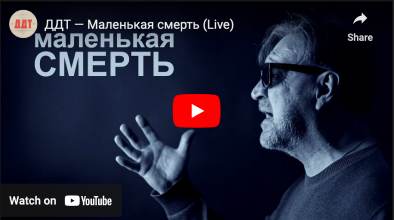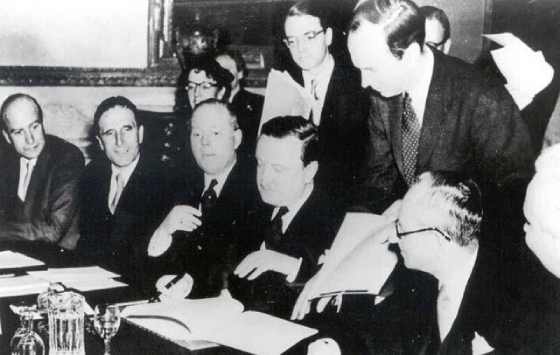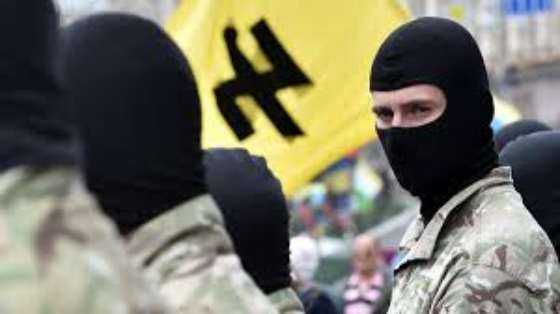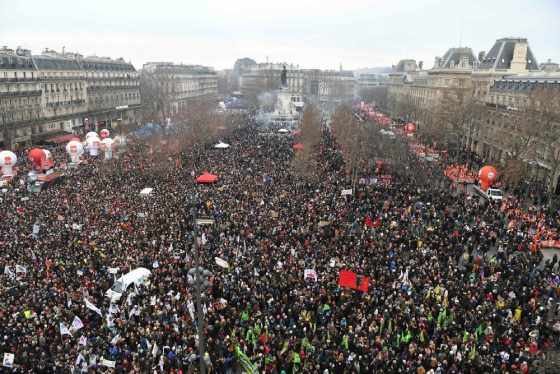Michel Warschawski : « Israël est divisé entre deux projets de société irréconciliables »
![Michel Warschawski]()
Journaliste, figure de la gauche radicale et du mouvement pacifiste en Israël, auteur de nombreux ouvrages dénonçant l’occupation et de la colonisation de la Palestine, Michel Warschawski signait en 2018 chez Syllepse son dernier livre, intitulé « Israël : chronique d’une catastrophe annoncée… et peut-être évitable ».
Le 7 octobre représente plus grand massacre de juifs depuis la seconde guerre mondiale. Comment vivez-vous ce paradoxe d’un État créé pour permettre aux Juifs menacés dans le monde de trouver refuge, qui s’est ici montré incapable de protéger, d’assurer la sécurité de ses citoyens ?
Il y a une image très pertinente de l’historien juif anglais Isaac Deutscher. Un fugitif est poursuivi par quelqu’un qui le menace avec un couteau. Il rentre dans la première maison venue pour y trouver refuge. Mais au lieu de dire « Excusez-moi, dehors je risque ma vie, il faudrait que je reste chez vous pendant un certain temps », très vite, il se met à repousser les propriétaires de l’entrée vers le séjour, du séjour vers la cuisine, pour finir par les cantonner au débarras. Et à la fin il dit : « Ici, cela a toujours été à moi ».








 Imaginons l’histoire suivante. Un pays est occupé, son peuple est systématiquement opprimé. L’État occupant encourage l’installation de colons sur leurs terres. La lutte pour l’émancipation de ce peuple opprimé reçoit un soutien trop insuffisant de la part des forces progressistes à l’extérieur du pays et est ignorée par les principaux États du monde. Les forces réactionnaires s’emparent de la cause de la libération nationale et recrutent au sein de la population qui subit l’injustice au quotidien. Elles recourent de plus en plus à l’action terroriste. Elles sont brutalement réprimées et se radicalisent jusqu’à donner naissance à une organisation d’extrême-droite ultra-réactionnaire.
Imaginons l’histoire suivante. Un pays est occupé, son peuple est systématiquement opprimé. L’État occupant encourage l’installation de colons sur leurs terres. La lutte pour l’émancipation de ce peuple opprimé reçoit un soutien trop insuffisant de la part des forces progressistes à l’extérieur du pays et est ignorée par les principaux États du monde. Les forces réactionnaires s’emparent de la cause de la libération nationale et recrutent au sein de la population qui subit l’injustice au quotidien. Elles recourent de plus en plus à l’action terroriste. Elles sont brutalement réprimées et se radicalisent jusqu’à donner naissance à une organisation d’extrême-droite ultra-réactionnaire. Les attaques meurtrières et les enlèvements dont ont été victimes depuis ce 7 octobre 2023 des centaines de civil·es habitant des localités israéliennes proches de la bande de Gaza constituent des crimes de guerre que l’Union des Progressistes Juifs de Belgique (UPJB) ne peut que condamner. Celles-ci nous choquent et nous affectent profondément.
Les attaques meurtrières et les enlèvements dont ont été victimes depuis ce 7 octobre 2023 des centaines de civil·es habitant des localités israéliennes proches de la bande de Gaza constituent des crimes de guerre que l’Union des Progressistes Juifs de Belgique (UPJB) ne peut que condamner. Celles-ci nous choquent et nous affectent profondément. Since the full-scale invasion of Ukraine in 2022, the debate about “decolonizing” Russia has moved rapidly from the realm of academia and cultural criticism to that of actual politics. Demands to “decolonize Russia” are voiced by opposition activists from Russia’s “national republics” (such as Buryatia or Bashkortostan) as well as from Ukrainian and some European […]
Since the full-scale invasion of Ukraine in 2022, the debate about “decolonizing” Russia has moved rapidly from the realm of academia and cultural criticism to that of actual politics. Demands to “decolonize Russia” are voiced by opposition activists from Russia’s “national republics” (such as Buryatia or Bashkortostan) as well as from Ukrainian and some European […]



 La Quarta Internazionale (e per certi versi l’intero trotskismo italiano) dal dopoguerra in poi in Italia si è riconosciuta in Livio Maitan (Venezia 1923-Roma 2004). Livio, di cui in queste settimane ricorre il centenario della nascita, è stato un militante rivoluzionario marxista attivo, sul piano politico e su quello teorico per quasi sessant'anni, fino alla sua morte, nel dibattito e nell’azione del movimento operaio italiano ed internazionale.
La Quarta Internazionale (e per certi versi l’intero trotskismo italiano) dal dopoguerra in poi in Italia si è riconosciuta in Livio Maitan (Venezia 1923-Roma 2004). Livio, di cui in queste settimane ricorre il centenario della nascita, è stato un militante rivoluzionario marxista attivo, sul piano politico e su quello teorico per quasi sessant'anni, fino alla sua morte, nel dibattito e nell’azione del movimento operaio italiano ed internazionale.
 Since Russia invaded Ukraine four months ago, over 16,000 people have been detained or arrested for protesting the war, the independent police-monitoring website OVD-info reports.
Since Russia invaded Ukraine four months ago, over 16,000 people have been detained or arrested for protesting the war, the independent police-monitoring website OVD-info reports.

 According to a new report published by Oxfam, the richest 1 percent grabbed nearly two-thirds of all new wealth worth $42 trillion created since 2020, almost twice as much money as the bottom 99 percent of the world’s population, reveals a new Oxfam report today. During the past decade, the richest 1 percent had captured around half of all new wealth. .
According to a new report published by Oxfam, the richest 1 percent grabbed nearly two-thirds of all new wealth worth $42 trillion created since 2020, almost twice as much money as the bottom 99 percent of the world’s population, reveals a new Oxfam report today. During the past decade, the richest 1 percent had captured around half of all new wealth. . 
 Les chiffres de grève et de manifestations sont historiques, avec 1,2 million de manifestantEs selon la police, plus de deux millions selon l’intersyndicale, des taux de grève très importants (ainsi plus de 70 % dans l’éducation), des mobilisations massives dans les villes. 50 000 à Bordeaux et à Toulouse, 20 000 au Mans, 3500 à Alençon, 4000 à Compiègne, 20 000 à Nice, 7000 à Agen et Montauban, 4000 à Gap, 15 000 à Avignon, 50 000 à Nantes, 10 000 à Saint-Nazaire, 20 000 à Rouen, 35 000 au Havre, 15 000 à Bayonne et Pau, 13 000 à Quimper, 13 500 à Brest, 11 000 à Angoulême, 10 000 à Poitiers, 13 000 à Angers, et bien entendu plusieurs centaines de milliers à Paris (bien loin des 80 000 annoncés par le ministère de l’Intérieur)…
Les chiffres de grève et de manifestations sont historiques, avec 1,2 million de manifestantEs selon la police, plus de deux millions selon l’intersyndicale, des taux de grève très importants (ainsi plus de 70 % dans l’éducation), des mobilisations massives dans les villes. 50 000 à Bordeaux et à Toulouse, 20 000 au Mans, 3500 à Alençon, 4000 à Compiègne, 20 000 à Nice, 7000 à Agen et Montauban, 4000 à Gap, 15 000 à Avignon, 50 000 à Nantes, 10 000 à Saint-Nazaire, 20 000 à Rouen, 35 000 au Havre, 15 000 à Bayonne et Pau, 13 000 à Quimper, 13 500 à Brest, 11 000 à Angoulême, 10 000 à Poitiers, 13 000 à Angers, et bien entendu plusieurs centaines de milliers à Paris (bien loin des 80 000 annoncés par le ministère de l’Intérieur)…